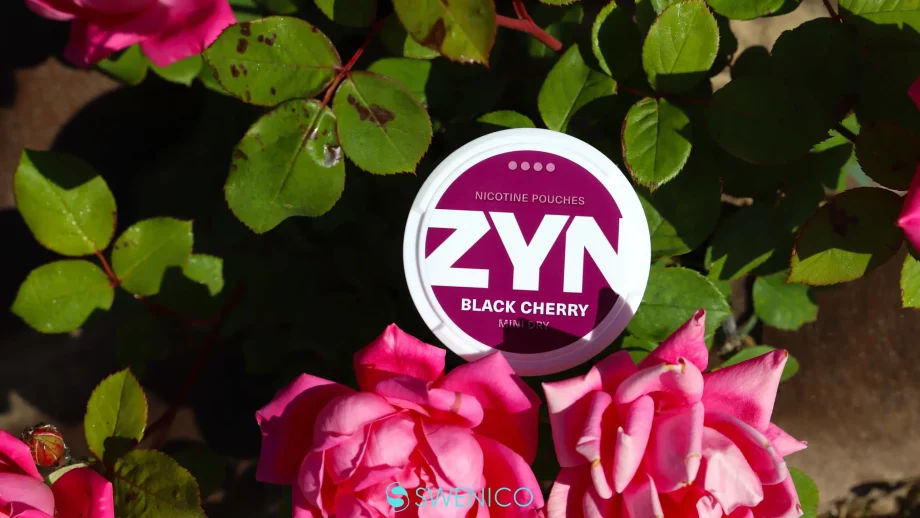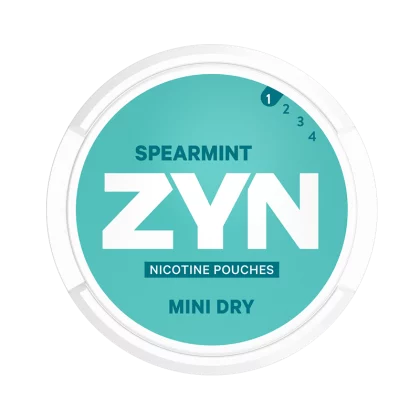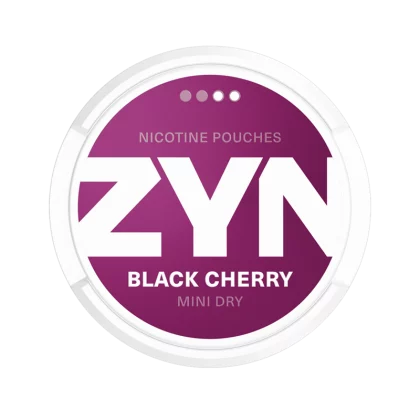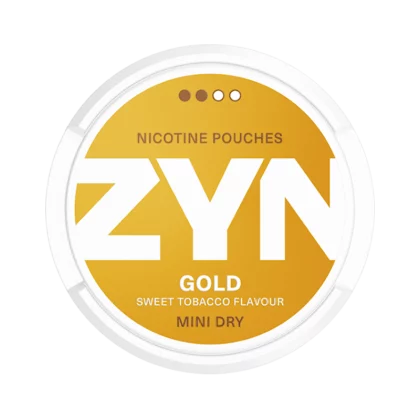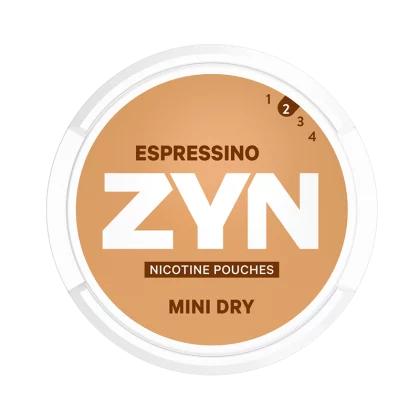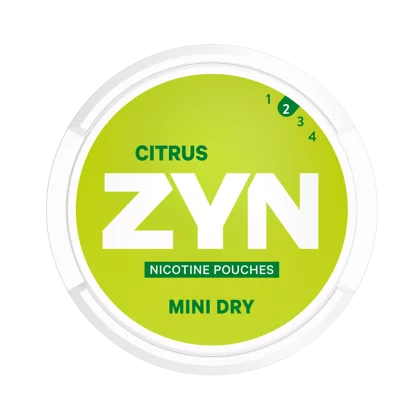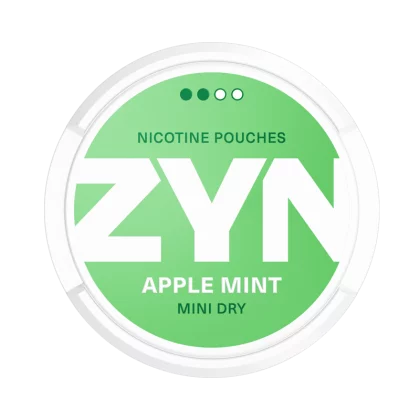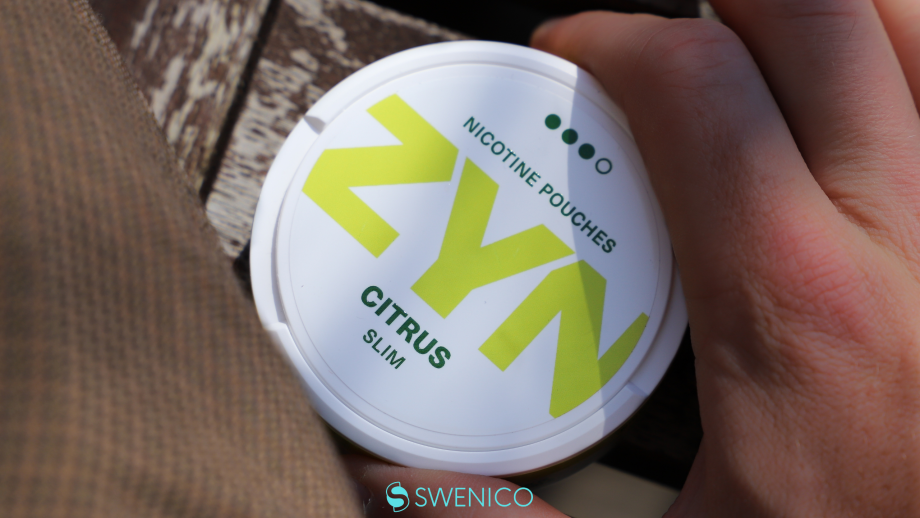In the ever-evolving world of nicotine consumption, the introduction of products like ZYN pouches has sparked a contentious debate regarding their classification. ZYN nicotine pouches have increased in popularity among individuals seeking alternatives to traditional tobacco products, are often lauded for their tobacco-free composition.
Nicotine Pouches are generally promoted as tobacco-free due to the fact that they do not contain any tobacco leaf. Yet, their status as tobacco products is a matter of dispute from some people due to their nicotine content which is derived from tobacco. This debate is not merely semantic but has critical implications for regulatory societal perspectives. In this article, we will delve into this complex issue, assessing various viewpoints, legal rulings, and scientific evidence, as we seek to answer the question: Are ZYN pouches indeed tobacco products?
Understanding ZYN Pouches
Before we begin, let’s first understand ZYN nicotine pouches.
ZYN nicotine pouches were launched in around 2015 by Swedish Match, the largest producer of traditional tobacco snus in the world. ZYN pouches are essentially a product development of traditional tobacco snus and are used in the same way with the key difference being that they do not contain tobacco leaf. Instead, the tobacco has been replaced with plant fibers.
In the grand scheme of things, nicotine pouches are a relatively new innovation in the sphere of nicotine consumption products. These small, white pouches are designed for oral use and come in pre-packed pouches. The pouches are placed under the upper lip where they release nicotine via the mucous membrane.
The distinct characteristic of ZYN pouches is that they contain no tobacco leaf, stem, or other plant matter typically associated with tobacco products.

Key Ingredients in ZYN Pouches
The primary active ingredient in ZYN pouches is nicotine, which is indeed extracted from the tobacco plant. Most manufacturers of nicotine pouches use nicotine salt.
While the name might make you think of table salt, nicotine salt has little to do with the salt we use in cooking. The ‘salt’ in nicotine salt refers to the chemical composition of the nicotine. When a tobacco leaf is dried and cured, it contains nicotine in its pure, or “freebase,” form. Freebase nicotine is alkaline and can be harsh for the throat and is thus not an ideal form of nicotine to use for an oral product like nicotine pouches.
Nicotine salts are generally smoother and more comfortable to consume than freebase nicotine. This is particularly true when they are combined with certain acids, like benzoic acid, which lower the pH of the nicotine solution and make it less harsh to consume.
Nicotine pouches, such as ZYN, use nicotine salts extracted from the tobacco plant. These salts are combined with other food-grade ingredients to create a product that’s easy to use, smooth to consume, and provides a consistent dose of nicotine. The use of nicotine salts in these pouches makes them more palatable and efficient in delivering nicotine to the body.
ZYN pouches consist of a blend of food-grade materials. These include fillers like cellulose, pH balancers, and flavorings to provide a variety of taste experiences for users. Importantly, the nicotine present is termed as “synthetic nicotine,” as it undergoes extensive processing, and the end product is free from tobacco impurities.
Functionality and Consumer Use
In terms of functionality, a ZYN pouch is placed between the user’s gum and upper lip, much like a snus pouch. Over time, the saliva in the user’s mouth extracts the nicotine, allowing it to be absorbed into the bloodstream via the oral mucosa. The pouches are discreet, spit-free, and come in various nicotine strengths and flavors.
Understanding the composition and use of ZYN pouches is critical to the ongoing debate about whether they should be classified as tobacco products. While they contain nicotine derived from tobacco, they lack the physical presence of tobacco—sparking a discussion that blends regulatory, health, and societal considerations. As we delve further into this topic, we’ll seek to clarify these complexities and shed light on this important debate.
The Tobacco Product Debate
One of the main arguments for categorizing ZYN pouches as tobacco products lies in the very substance that makes them appealing to users: nicotine. While the pouches themselves do not contain physical tobacco, the nicotine used in these products is derived from the tobacco plant. Therefore, some argue that, regardless of the extraction process, these products indirectly stem from tobacco and should be classified accordingly.
Another angle to this argument draws upon the similarity in usage patterns. ZYN pouches are used in a manner akin to many traditional tobacco products, like snus or chewing tobacco, where the substance is placed in the mouth to allow for nicotine absorption. Therefore, even without the presence of tobacco, some feel the categorization as a tobacco product is warranted due to these similarities.
ZYN Pouches as Non-Tobacco Products: The Arguments Against
On the other side of the debate are those who assert that ZYN pouches should not be classified as tobacco products. The crux of this argument hinges on the absence of actual tobacco leaf, stem, or other plant matter in the pouches. Since the nicotine in ZYN pouches undergoes an extensive extraction and purification process, the resulting nicotine is often described as synthetic and doesn’t contain tobacco impurities.
Moreover, these individuals may argue that categorizing a product based on where its primary active ingredient originates is a slippery slope, potentially leading to undue classification of numerous other products.
The debate on whether ZYN pouches are tobacco products is far from black and white. It calls for careful consideration of what truly defines a ‘tobacco product’. Is it the presence of nicotine, a substance extracted from tobacco? Or is it the physical presence of tobacco matter in the product? The only conclusion we can draw is that most jurisdictions have not classified nicotine pouches such as ZYN as tobacco products as they do not contain tobacco leaves, which is an indicator of how nicotine pouches are regarded from a legal perspective. This brings us to the next point.

Legal Perspective
In most jurisdictions, laws and regulations on tobacco products focus on those containing tobacco leaf, or are made from the tobacco plant. For example, in the United States, the Family Smoking Prevention and Tobacco Control Act of 2009 gives the Food and Drug Administration (FDA) the authority to regulate the manufacture, distribution, and marketing of tobacco products. However, the definition of tobacco products primarily hinges on the presence of tobacco leaf.
ZYN pouches, given their tobacco-free composition, present a regulatory conundrum. Despite the fact that they contain nicotine derived from tobacco, they do not contain any actual tobacco leaf or plant matter, which puts them in a grey area concerning current regulations. In the US, as an example, the FDA has regulatory authority over tobacco products and it also has a separate category for products containing nicotine derived from tobacco. But, whether the FDA’s definition extends to products like ZYN pouches, which contain tobacco-derived nicotine but no tobacco plant material, is still a subject of legal interpretation.
Notable Legal Cases and Regulatory Decisions
There have been a few notable cases and decisions that have begun to set the regulatory tone for ZYN pouches and similar products. For instance, in the European Union, these pouches are treated differently in different countries, with some categorizing them as tobacco products, while others do not. In the US, the FDA has started to regulate synthetic nicotine products more closely, but it is still a complex and evolving area of the law. As this legal landscape continues to evolve, the classification of ZYN pouches may well change, making it critical to stay updated on such developments.
Moreover, some countries have interestingly enough classified nicotine pouches as tobacco products, however, these countries are relatively few and most countries have not come to this conclusion since ZYN nicotine pouches do not contain tobacco leaves.
The legal perspective on the categorization of ZYN pouches as tobacco products shows that the issue is far from being resolved. As lawmakers and regulatory bodies grapple with these innovative products, the outcomes of their deliberations will undoubtedly have far-reaching implications for both consumers and the industry as a whole.
Societal and Cultural Factors
The societal perception of ZYN pouches largely hinges on their categorization as either tobacco or non-tobacco products. As awareness grows about the harms of traditional tobacco products, many people view non-tobacco alternatives in a more positive light. ZYN pouches, with their tobacco-free composition, are often perceived as a safer alternative. This perception influences public opinion, and it can significantly impact how these products are accepted and used within society.
The classification of ZYN pouches as tobacco or non-tobacco products also affects cultural attitudes and norms. For instance, if they are defined as tobacco products, they may be subject to the same societal scrutiny and stigma attached to traditional tobacco products. This could impact their use, particularly in public spaces where smoking or tobacco use is frowned upon or outright banned. There are, however, no suggestions that most countries are moving in this direction. Instead, many countries are opening up to harm-reducing products as opposed to traditional tobacco products as a way to shift to less harmful alternatives.
Conversely, if they are categorized as non-tobacco products, they may be more readily accepted by society. This can shape social norms, potentially leading to a higher prevalence of their use in various social settings. As we know for a fact that nicotine pouches are less harmful than cigarettes and other tobacco products, this is a very positive step for public health and thus far it seems that most jurisdictions are moving in this direction as a way to reduce the number of smokers.
The societal and cultural factors surrounding the classification of ZYN pouches as tobacco products add another layer of complexity to this issue. It’s clear that this decision extends beyond just regulatory and health implications, and can deeply influence societal behavior and norms. As we continue to grapple with this debate, it will be essential to consider these broader implications.
The Future of ZYN Pouches and Similar Products
The classification of ZYN pouches as either tobacco or non-tobacco products has significant implications for the future of nicotine-related products and the industry as a whole. If ZYN pouches are categorized as tobacco products, this could create a higher barrier to entry for similar products in the future, as they would need to comply with strict tobacco regulations.
However, if they are classified as non-tobacco products, this could pave the way for more innovation in the industry. Companies might be encouraged to develop new, potentially safer alternatives to traditional tobacco products, leading to a wider variety of options for consumers looking for tobacco-free ways to consume nicotine.
Possible Changes in Laws and Regulations
The debate surrounding the classification of ZYN pouches also prompts a larger discussion about potential changes in laws and regulations. Regulatory bodies worldwide are grappling with how to handle these new types of products, which don’t fit neatly into existing categories.
In the future, we may see changes in the way tobacco and nicotine products are defined and regulated. This could include new categories for products that contain nicotine but not tobacco, stricter regulations on all nicotine products regardless of their source, or a more nuanced approach that considers the different risk profiles of various products. Several countries have already moved in this direction and updated the legislation to meet the current realities of modern nicotine products.
The future of ZYN pouches and similar products is closely tied to how this debate unfolds. As we continue to seek the right balance between harm reduction, public health, and regulatory considerations, it’s clear that the decisions made today will have far-reaching effects on the landscape of nicotine consumption in the future.
Conclusion
Throughout this article, we have navigated the complex terrain of understanding ZYN pouches and their categorization as tobacco products. We’ve explored their composition and use, examined both sides of the ongoing debate, analyzed the current legal perspective, considered the health implications, and delved into societal and cultural factors. Furthermore, we’ve projected how the outcome of this discussion could shape the future of nicotine products.
The categorization of ZYN pouches as either tobacco or non-tobacco products is not a straightforward issue. It requires a thoughtful consideration of multiple factors and perspectives. The decision made will undoubtedly have wide-ranging implications, influencing not only laws and regulations but also societal attitudes, public health strategies, and future product innovations in the nicotine industry.
In conclusion, answering the question, “Are ZYN pouches tobacco products?” is far more complex than a simple yes or no. As we continue to explore this intriguing topic, we need to maintain an open dialogue, ensure a nuanced understanding of the products in question, and keep pace with legal and scientific developments. This approach will guide us towards a resolution that prioritizes both public health and consumer choice. It’s a challenging task, but one that is vital to navigate the evolving landscape of nicotine consumption responsibly and effectively.
What we can say however is that most countries do not classify nicotine pouches as tobacco products. The countries that do are relatively few and instead, most countries are looking at amending or updating current regulations to reflect the market of modern nicotine products.
Popular ZYN nicotine pouches
-
ZYN Spearmint Mini Dry Mild 1.5mgPrice is hidden
-
ZYN Original Mini Dry 3mgPrice is hidden
-
ZYN Mini Black Cherry 3 mgPrice is hidden
-
ZYN Gold Mini Dry Normal 3mgPrice is hidden
-
ZYN Espressino Mini Dry Normal 3mgPrice is hidden
-
ZYN Cool Mint Mini Dry Normal 3mgPrice is hidden
-
ZYN Citrus Mini Dry Normal 3mgPrice is hidden
-
ZYN Bellini Mini Dry Normal 3mgPrice is hidden
-
ZYN Apple Mint Mini Dry 3mgPrice is hidden

